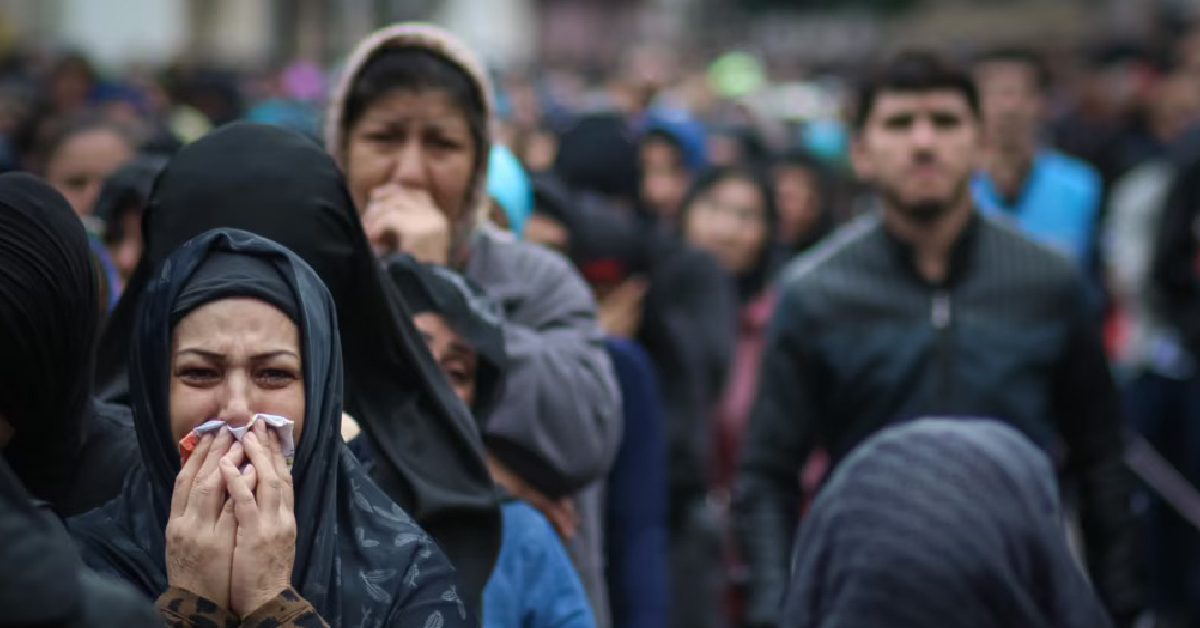2026
2026
2025-07-11

The pressure and persecution against Shiite clerics and believers in Azerbaijan is already an established practice. Baku has consistently aimed to keep the faithful under its control and to prevent processions during religious ceremonies, considering them a threat to the current regime.
The Day of Ashura[1] became another occasion for the Azerbaijani authorities to display brutality toward Shiite clerics and believers. On the orders of the authorities in Baku, Ashura was celebrated in Azerbaijan on July 5, although it was supposed to be observed on July 6, as Shiite communities around the world did. The order provoked discontent among the Shiite faithful.
On the eve of the holiday, Haji Habil Iskanderli, the akhund (Muslim cleric) of the “Imam Zaman” mosque, stated that “marking Ashura on July 5 is the order of the authorities, while marking it on July 6 is a matter of faith, a command from God.” He called on the faithful to observe the day on both dates. Shortly afterward, the akhund was taken to the police, and following this, he was dismissed from his position as imam of the “Sahibes Zaman” mosque.
On the Day of Ashura the faithful participate in mourning processions and prayers. In mosques, tragic hymns are performed, and the martyrdom of Imam Hussein is commemorated through weeping and lamentation.
On the morning of July 6, police officers and a small number of believers were present in the vicinity of mosques. Strict restrictions were in place. In some localities, scuffles broke out between the faithful and the police. Law enforcement officers used brute force to obstruct the believers’ access to mosques, filmed them, and beat those they deemed “disobedient.” Police confiscated and desecrated flags bearing the inscription “I am Hussein,” and claimed that such flags “do not belong to Azerbaijan.”

In widely circulated videos, believers can be seen expressing their outrage over the restrictions.
In the village of Nardaran—considered the center of “religious fanaticism” in Azerbaijan and a zone of Iranian influence—security forces raided one of the mosques during a mourning ceremony, conducting searches and arresting 15 to 20 participants.
In another instance, believers were barred from entering the Bibi-Heybat Mosque located on the Baku bay.
At the “Juma” Mosque in Sumgait, following a protest with chants of “I am Hussein,” the police were eventually forced to open the mosque doors.

In Ganja, security forces forced women out of a mosque during the rain and even subjected some of them to physical assault.
Journalist Arzu Abdulla Gyulzaman spoke out about the restrictions on religious rituals in Baku. According to him, he was not allowed to mourn aloud in a mosque, with officials claiming that “the government does not allow weeping.” Meanwhile, the police officers guarding the site told him, “The authorities marked Ashura on July 5, but you are following Iran’s laws” (literally: “You are going with Iran”).
On the Day of Ashura, not only were women barred from entering mosques, but children as well. Already in late June, Azerbaijan’s Ministry of Internal Affairs and the State Committee for Work with Religious Organizations had jointly warned against allowing minors to participate in religious ceremonies.
Social worker Sanubar Heydarova pointed out that this ban contradicts the state’s educational policy, which instills military rhetoric in children from an early age in schools—showing them photos of soldiers crushed under tanks. Legal expert Khalid Bagirov, citing the UN Convention on the Rights of the Child, emphasized that parents have a fundamental right to raise their children in accordance with their religious beliefs. He argued that such bans are part of a systematic policy of restricting the Shiite community’s religious freedoms.
According to Alemdar Bunyadov, a representative of the “Muslim Unity Movement,” this approach reveals the state’s overtly hostile attitude toward the Shiite community.
Furthermore, the Azerbaijani authorities are doing everything possible to prevent the spread of Iranian influence in the country, since Azerbaijan’s Shiite believers primarily follow the fatwas (religious rulings) issued by high-ranking Iranian religious leaders in their prayers and religious matters. It is important to note that in recent years, many Shiite clerics in Azerbaijan have been subjected to imprisonment on charges including espionage for the Islamic Republic of Iran, drug use, hooliganism, and treason. According to data from the NGO Freedom for Azerbaijan’s Political Prisoners, the total number of political prisoners in the country is 375, of whom 241 (64%) have been detained on religious grounds.
While Baku publicly accuses Armenians of “destroying Islamic heritage” on international platforms, the Shiite Muslim majority in Azerbaijan is, with the tacit approval and directives of the authorities, being deprived of their constitutionally guaranteed religious freedoms and their right to express and practice their faith.
[1] Ashura is a day of mourning for Shiite Muslims, commemorating the martyrdom of Imam Hussein, the grandson of the Prophet Muhammad, who was killed in the Battle of Karbala in 680 AD.